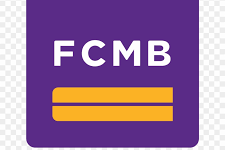ARE LOAN APPS IN NIGERIA HELPING OR HURTING BORROWERS?
LOANS
Dr. Ayo Adeyi
9/16/20252 min read


John is a small building contractor who lives in Lugbe, Abuja, but runs his business mainly around Garki and Wuse. His work depends on winning renovation and repair jobs from homeowners and shops. On good days, he earns enough to pay his workers and buy materials. But when clients delay payments, John struggles to keep projects moving. Traditional banks are no help—they demand collateral and paperwork he cannot provide. So when he discovered a loan app, it felt like a breakthrough.
One afternoon, after losing a contract for lack of upfront funds, John tried one of the popular lending apps. Within minutes, ₦50,000 was credited to his account—no collateral, no guarantor. With it, he bought materials, completed the project, and made profit. For John and many other Nigerians, loan apps appeared to be a lifeline, offering quick access to credit where banks had failed.
However, the relief was short-lived. That ₦50,000 loan required ₦65,000 in just three weeks. When another client delayed payment, John missed the deadline. The harassment began immediately: constant messages, late-night calls, and even defamatory texts sent to some of his contacts, including potential clients in Wuse. His reputation, built over years, was suddenly at risk.
John’s story mirrors the experience of many borrowers. Loan apps often charge exorbitant interest rates—sometimes 20–30%—that trap users in cycles of debt. Borrowers are forced to take new loans to pay old ones, undermining the financial stability they hoped to gain. Worse still, unethical recovery practices such as shaming, threats, and data abuse inflict emotional and social harm.
Yet, loan apps are not entirely harmful. For small contractors like John, students, and traders, they provide a rare opportunity to access funds quickly, sometimes saving businesses or families from collapse. The real challenge lies in how these platforms operate, often without strong oversight. While the Central Bank of Nigeria and the FCCPC have begun regulating digital lenders, unlicensed operators still exploit desperate borrowers.
In conclusion, loan apps in Nigeria both help and hurt borrowers. They expand financial inclusion but also expose users to high interest rates and unethical practices. John’s experience in Lugbe and Wuse shows their double-edged nature. With stricter regulation, transparent terms, and financial education, loan apps can shift from being traps to genuine tools of empowerment.
Visit this page daily for your dose of financial sense to power up your wealth growth. Also, share with your family, friends and colleagues.





